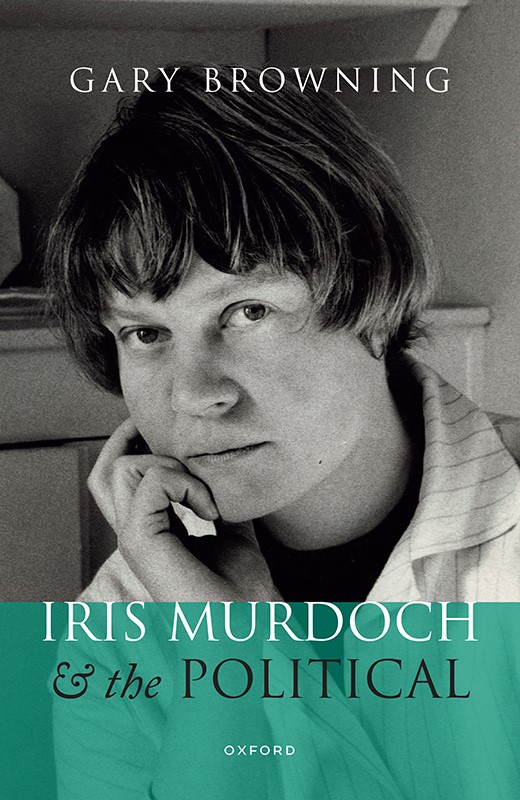ABR receives a commission on items purchased through this link. All ABR reviews are fully independent.
Mind on the border
In a letter to her friend Raymond Queneau in 1946, the twenty-seven-year-old Iris Murdoch asked, ‘Can I really exploit the advantages (instead of suffering the disadvantages) of having a mind on the border of philosophy, literature and politics?’ Well known as a philosopher and a novelist, Murdoch is less likely to be thought of as a political writer, though Gary Browning claims it to be the ‘simple truth’.
Browning is the ideal person to investigate this question, as a noted Murdoch scholar, admirer of her literary and philosophical writings, and political scientist. He states from the outset that politics, for Murdoch, ‘is not a dispensable discrete interest, but is an integral aspect of experience’. She was an inveterate crosser of borders, interested in all the arts, in philosophy, and certainly in politics. How she expressed these interests depended largely on whether she was writing fiction, poetry, plays, essays, philosophy, or letters.
Continue reading for only $10 per month. Subscribe and gain full access to Australian Book Review. Already a subscriber? Sign in. If you need assistance, feel free to contact us.
Iris Murdoch and the Political
by Gary Browning
Oxford University Press, £76 hb, 247 pp
ABR receives a commission on items purchased through this link. All ABR reviews are fully independent.
















Comment (1)
In her review of Gary Browning’s Iris Murdoch and the Political (ABR, November 2024) Gillian Dooley notes, ‘After graduating from Oxford she worked in the Civil Service’, moving on without further ado to Murdoch’s postwar work with the United Nations Relief and Rehabilitation Administration. Dooley doesn’t mention the evidence that has emerged over the years - from Murdoch’s friends John Jones and Phillipa Foot - that she was still an active member of the Communist Party during World War II and had passed on documents from government offices to the Communist Party. Having set out this evidence in On the question of whether Iris Murdoch was a Soviet spy (Overland, March 2022), I find it difficult to accept Iris Murdoch as a moral philosopher.
Sue Rabbitt Roff
Leave a comment
If you are an ABR subscriber, you will need to sign in to post a comment.
If you have forgotten your sign in details, or if you receive an error message when trying to submit your comment, please email your comment (and the name of the article to which it relates) to ABR Comments. We will review your comment and, subject to approval, we will post it under your name.
Please note that all comments must be approved by ABR and comply with our Terms & Conditions.